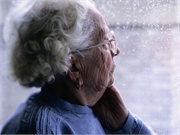TUESDAY, Aug. 4, 2020 (HealthDay News) — Older Americans are feeling stressed by COVID-19 and prolonged social isolation, but they’re also showing their resiliency, a new study finds.
Most of these adults have turned to a range of tools to stay in touch, researchers report.
“Many of the social venues that help older adults stay engaged are effectively cut off now with social distancing. While the internet can help with some connections, it is hard to replace human contact,” said researcher Kerstin Emerson, a clinical associate professor of gerontology at the University of Georgia’s Institute of Gerontology. “And for some, these remote connections aren’t possible due to no reliable internet.”
For the study, Emerson surveyed more than 800 adults aged 60 and older between March 30 and April 12, when they had been in lockdown for 17 days.
“Part of the reason I did that was because I wanted to see if there was a difference by age groups, among the ‘younger old’ and ‘older old,’ who may have different work responsibilities and living situations,” she said in a university news release.
Emerson found that about 40% of 60- to 70-year-olds felt moderately or very stressed and out of control of their lives.
Among this group, more drinking and eating was seen. Also, some exercised more and some less than usual.
Those aged 71 and older seemed to cope with stress better — 74% experienced little to no stress, and said it was no more stressful than living through times of war.
“That’s where older adults have a strength,” Emerson said. “They have life experience and coping mechanisms that we don’t often give them credit for, but that’s part of their wisdom. We can really turn to older adults as examples of how to manage and live through bad periods of history.”
She also found that more older adults were calling, texting, emailing and using social media. In fact, two-thirds used social media, such as Facebook, and more than half made video calls once a day.
However, those surveyed were people who had access to the internet and a computer or smart device, “so we’re probably not reaching the most vulnerable populations, people who are socially isolated in rural areas or who are incredibly poor,” Emerson said.
The study was published recently in the Pan American Journal of Public Health.
More information
For more on COVID-19 and stress, see the U.S. Centers for Disease Control and Prevention.
Copyright © 2026 HealthDay. All rights reserved.

